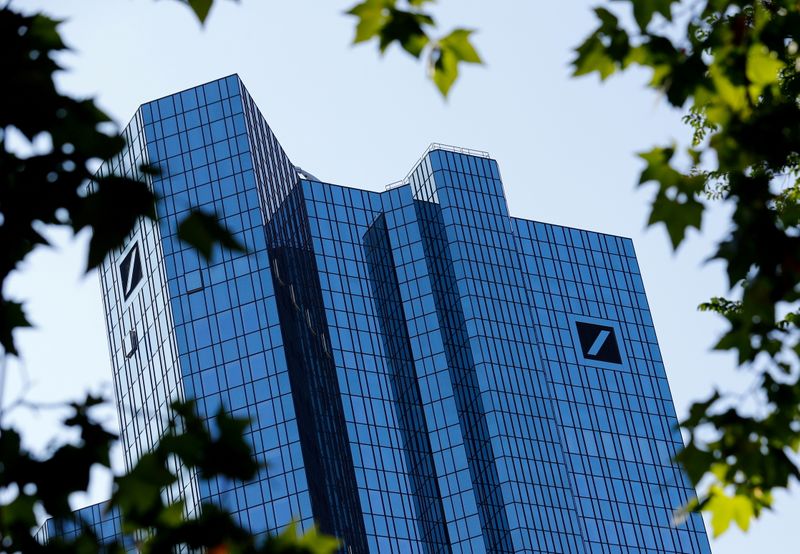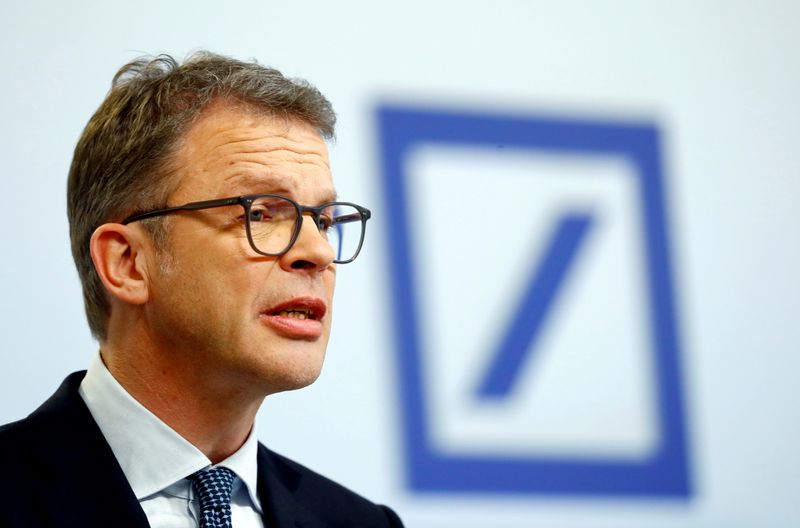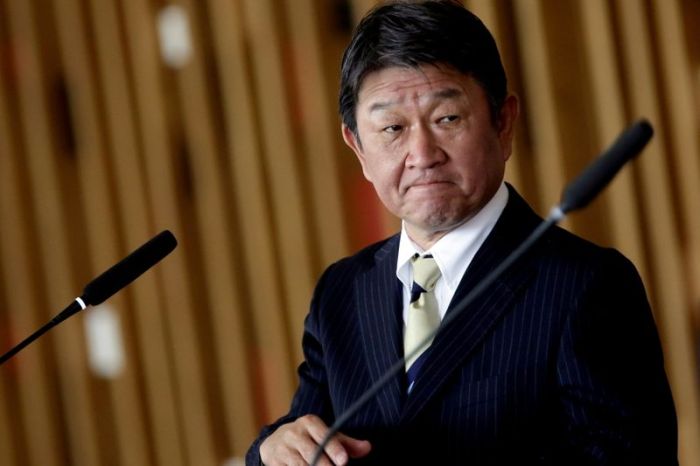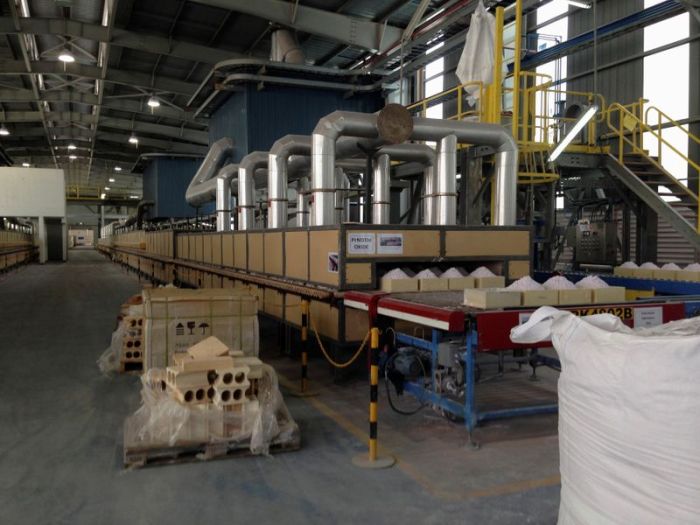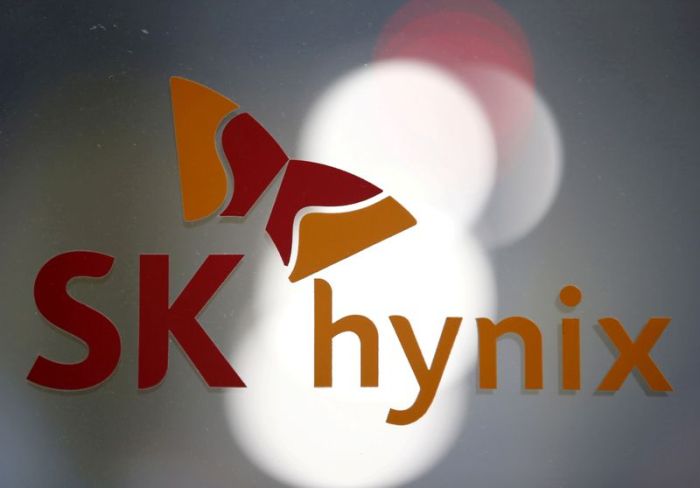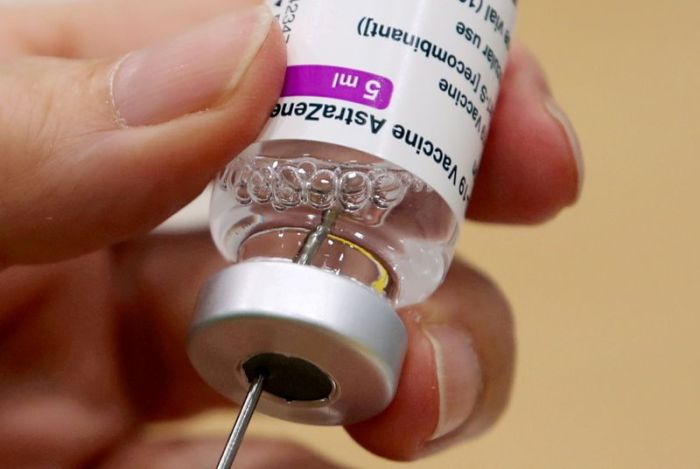FRANKFURT (Reuters) – Deutsche Bank posted a better-than-expected net profit for the first quarter, its strongest in seven years, driven by its investment banking activities that outperformed major U.S. rivals.
Not long ago, Deutsche’s sprawling investment bank was viewed as its problem child following dwindling revenue and scandals involving the sale of mortgage securities and the laundering of money from Russia. Deutsche managers said they would focus more on old-fashioned retail and corporate banking.
But now, revenue of the fixed-income trading business and origination and advisory services have surged, trends that have also lifted profits of competing banks, and helped offset lacklustre performance at Deutsche’s other divisions.
Deutsche, Germany’s largest lender and one of the world’s most important, on Wednesday reported a first-quarter net profit attributable to shareholders of 908 million euros ($1.1 billion) versus a year-earlier loss of 43 million. That beat consensus profit expectations of around 600 million euros, and was the best quarter since the first three months of 2014.
The profit figures were good news for Chief Executive Christian Sewing, who embarked on a radical restructuring two years ago that involved shedding 18,000 staff in an effort to return the bank to profitability.
“Even though we undoubtedly benefited from a favourable market environment, this result shows once again that we are on the right track with our strategy,” Sewing told staff.
Deutsche said it now expects revenue to be essentially flat in 2021 compared with a previous estimate of marginally lower. The shares traded 9.5% higher at 1134 GMT in Frankfurt.
The bank had hoped to trim costs to 18.5 billion euros for 2021 but additional costs of around 400 million euros in bank levies and a German deposit protection scheme following the collapse of Greensill Bank, the lender owned by insolvent UK finance firm Greensill, could make that difficult to achieve.
For a graphic on Deutsche Bank quarterly results:
https://graphics.reuters.com/DEUTSCHEBANK-RESULTS/rlgvdzzmwvo/chart.png
Michael Rohr, analyst with ratings agency Moody’s, said the bank’s results “propel its profitability to a new level”.
Analysts at Citigroup called it “an impressive quarter” but kept a “sell” rating as they predict the bank will miss a key profitability target – an 8% return on tangible equity in 2022.
The investment bank’s resilience helped Deutsche eke out a small profit for 2020, its first after five years of losses.
Questions remain about the sustainability of the investment banking boom, but analysts expect Deutsche to deliver another profit in 2021, a consensus forecast of their estimates shows.
“The trajectory we are on is significantly ahead” of last year, finance chief James von Moltke told journalists when asked about profit for 2021.
Deutsche’s key fixed-income and currency sales and trading business, with revenue up 34% at nearly 2.5 billion euros, marked its best quarter since 2015.
That growth is better than some U.S. investment banks. Goldman Sachs reported a 31% rise in such trading in the first quarter, while those at JPMorgan were up 15%.
Origination and advisory services revenue at Deutsche, up 40%, showed its best quarter since 2017. That was partly due to its business in Special Purpose Acquisition Companies (SPACs). Asset management revenue rose 23%.
Low interest rates and a slowdown in global trade pressured revenue at Deutsche’s other divisions, such as those for corporate and retail clients, where revenue stagnated.
In a sign the bank sees itself over the hump of the coronavirus pandemic, it expects risk provisions for credit losses of around 1.1 billion euros this year, down from 1.8 billion last year.
“It remains to be seen if that will be enough,” Klaus Nieding of the shareholder lobby group DSW said.
(Reporting by Tom Sims and Patricia Uhlig; editing by Jason Neely, Elaine Hardcastle and David Evans)

